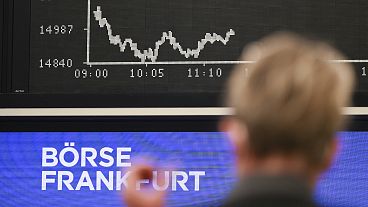Crude oil markets are facing downward pressure following the release of weak manufacturing and services data from major economies. Meanwhile, escalating conflicts in the Middle East and additional stimulus measures from China have provided some support.
Crude oil prices fell on Monday following weak manufacturing and services Purchasing Managers' Index (PMI) data from Europe and the US.
The PMI readings are derived from a survey of purchasing managers, offering insights into current business conditions and thus reflecting the overall economic outlook.
West Texas Intermediate (WTI) futures dropped 0.6%, while Brent futures fell 1.5%, compared with last Friday's close, as fears of an economic downturn in major economies weighed on the market.
However, escalating military tensions between Israel and Hezbollah provided some support, helping oil prices recover from their intraday lows.
In the Asian session on Tuesday, both WTI and Brent crude futures saw a rebound, with WTI rising by 1.07% to $71.12 per barrel, and Brent up by 0.93% to $73.89 per barrel at 6:24 am CEST, following a series of stimulus measures announced by Beijing.
However, the price recovery may prove short-lived, given the continued weak demand in China.
Global PMIs disappoint
According to flash data from S&P Global, business activity in the eurozone's private sector has experienced a sharp decline in September, with both manufacturing and services PMIs falling in France and Germany.
The most significant slowdown is in the French services sector, which has returned to contraction following an Olympics-driven rebound in August, marking its sharpest drop since January.
In Germany, both manufacturing and services PMIs indicate that output and new orders are also experiencing accelerated contraction, signalling deteriorating business conditions.
Furthermore, manufacturing activity in the UK and the US has also come in weaker than expected this month.
These disappointing economic data, particularly in global manufacturing PMIs, have dampened the oil demand outlook, as the sector is energy-intensive and relies heavily on oil for production, transportation, and operations.
Economic concerns on China
China, the world's largest oil importer, continues to grapple with significant economic challenges.
Recent data indicates that the country's consumer price index (CPI) and imports both rose less than anticipated in August, suggesting persistent sluggish domestic demand.
Key economic indicators, including retail sales, industrial output, and fixed asset investment, all fell short of expectations for the same month.
In addition to slowing economic growth, China's shift towards low-carbon alternatives has also dampened oil demand projections.
According to Goldman Sachs, annual oil demand in China is expected to decline to roughly 200,000 barrels per day, more than halving compared to pre-pandemic levels.
A report by Bloomberg noted that one in three new heavy-duty trucks sold in China was powered by liquefied natural gas in April, up from one in eight a year ago.
Amid these ongoing economic woes, the People's Bank of China (PBOC) announced a series of support measures for its economy on Tuesday, which reignited risk-on sentiment across Asia and provided some support for crude prices.
The PBOC revealed plans to cut the reserve requirement ratio (RRR) by 0.5%, alongside a 0.2% reduction in the seven-day repo rate.
However, a sustained increase in prices will depend on tangible economic growth as these measures take effect.
A major escalation in the Middle East war
Conversely, escalating military conflicts in the Middle East have raised concerns about supply disruptions, leading to some price rebounds in the oil markets.
However, the market response indicates that economic concerns are overshadowing geopolitical tensions, resulting in oil prices remaining relatively stable at this point.
On Monday, Israel launched airstrikes on southern Lebanon, resulting in nearly 500 fatalities and 1,650 injuries.
The ongoing war between Israel and Hamas in Gaza has now expanded to include conflicts with the Iran-backed Lebanese political group.
This attack represents a significant escalation in the Gaza war and could potentially lead to a broader conflict across the Middle East.















